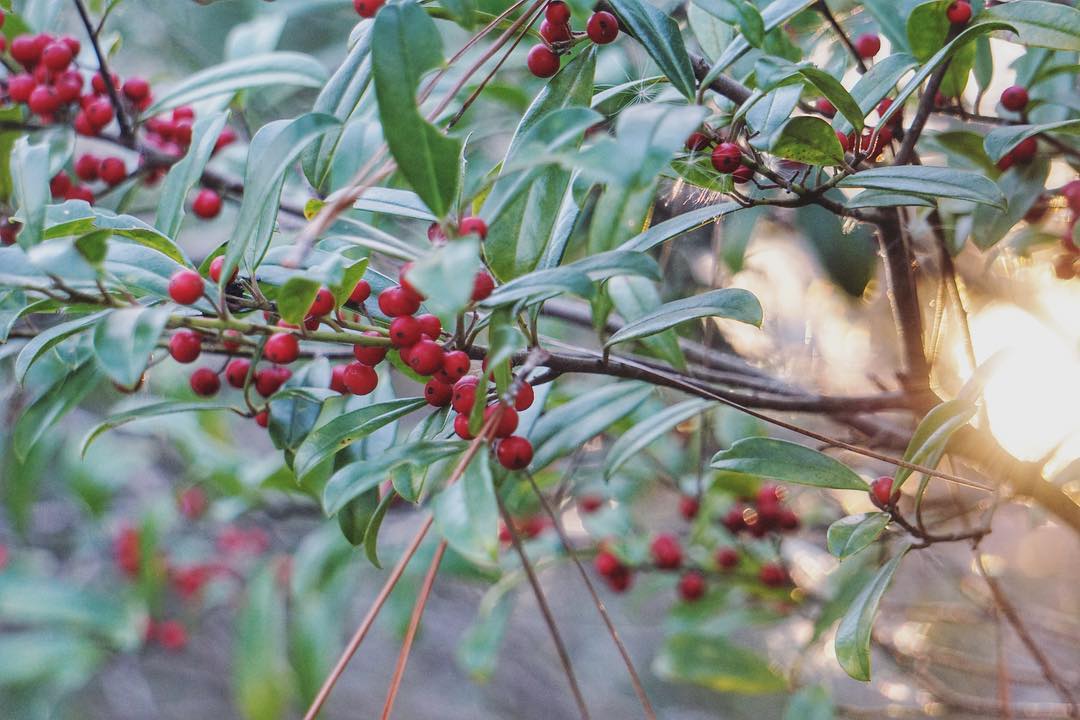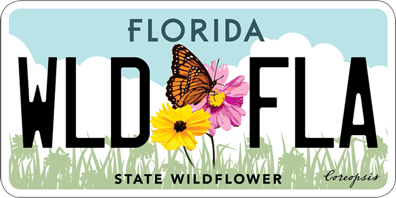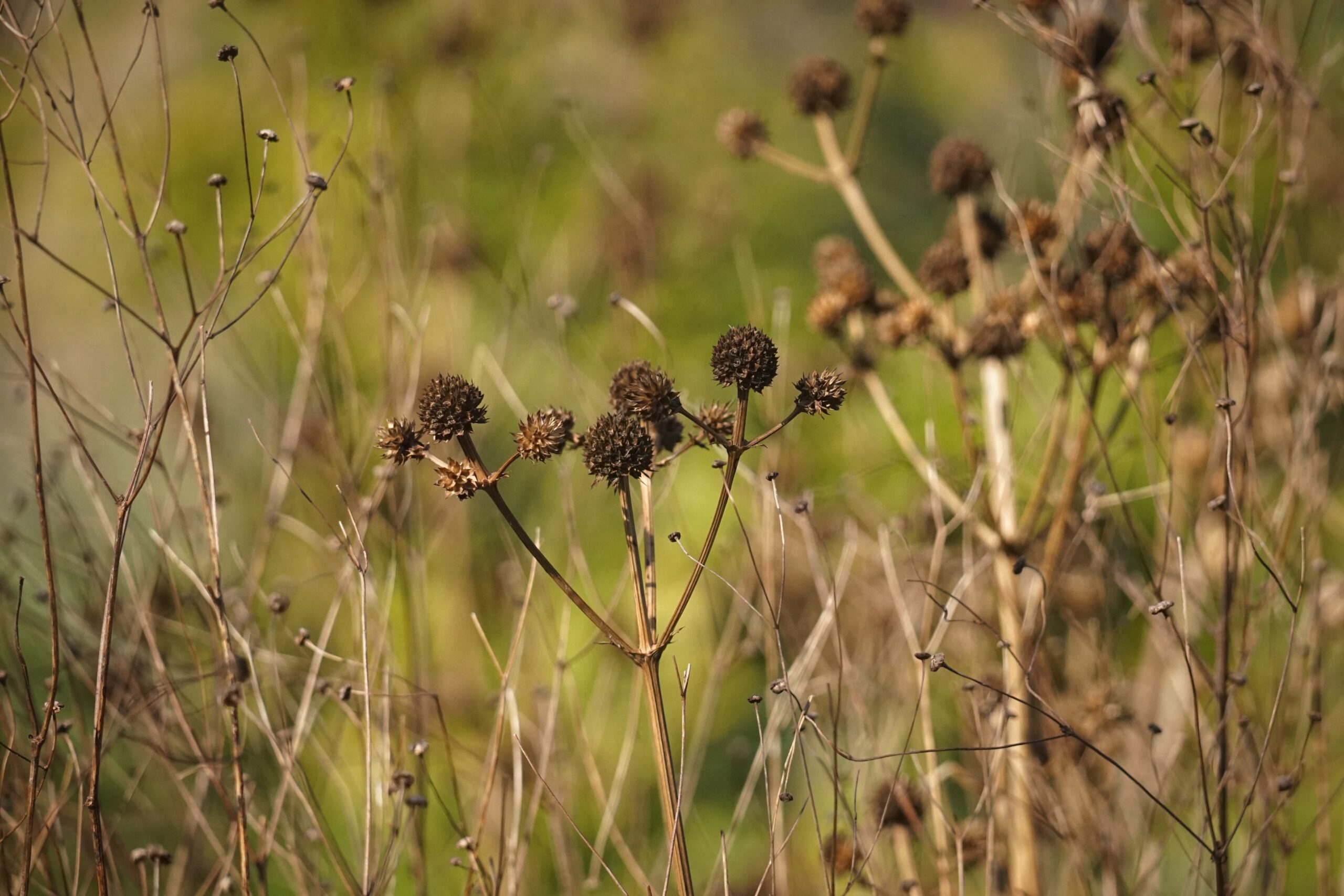All the leaves may be brown, but here’s why that’s beautiful!
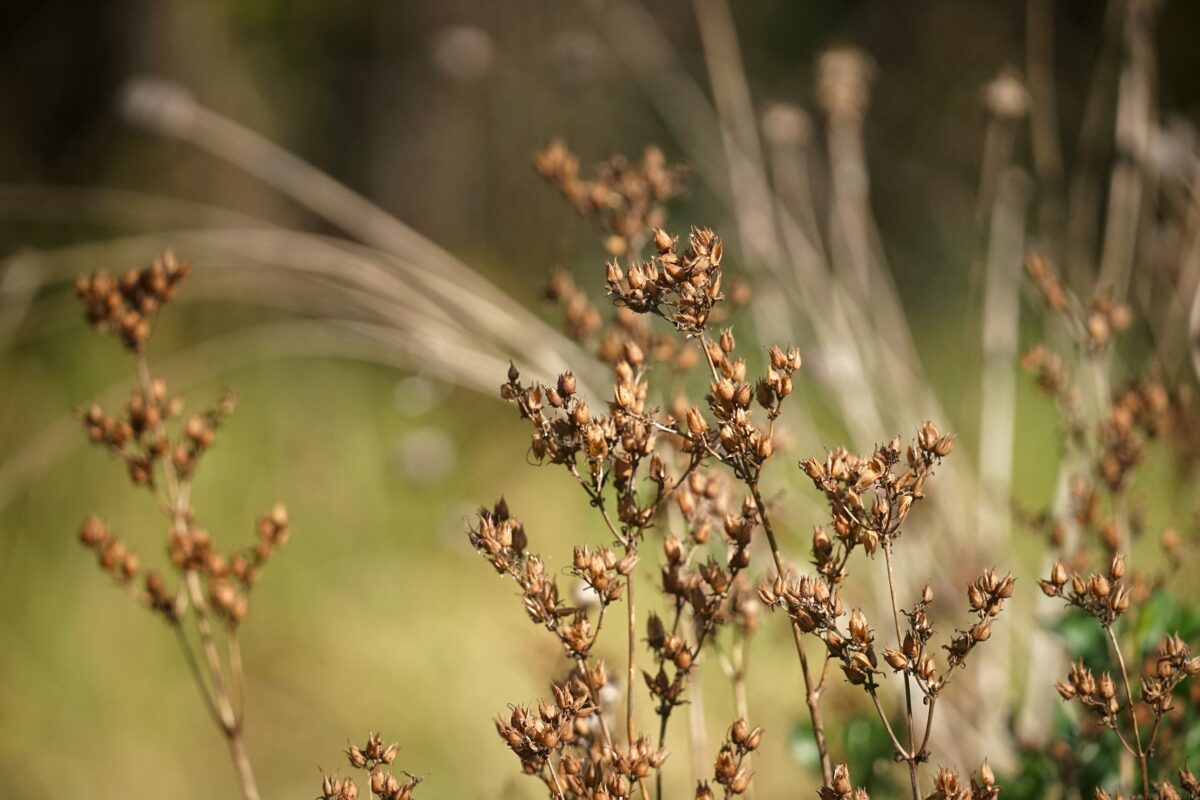
A critical component of the backyard revolution is changing our relationship with urban landscapes so that we can support habitat networks in our own yards and communities. Here in Florida, there is a long-held ethos that we must keep things green and bright all year long. However, for much of the state, this goes against seasonal patterns and what our nature actually needs! In the winter months, many perennial wildflowers go dormant and annuals die back, dropping leaves and leaving brown stems adorned with flowerheads that have gone to seed. The urge to pull out the clippers and tidy up can become strong this time of year, but we urge you take a cue from nature and rest, letting your garden do the same.
Why does the natural winter garden matter?
Believe it or not, the brown hollow stems and leaf litter in your native plant garden are actually teeming with life, sleepy though it may appear. Hollow stems and some bare ground provide critical overwintering habitat for native bees. (Learn more about Florida’s native bees in winter here.) Butterfly and moth species overwinter within the leaf litter, sheltered from the cold and predators. Many frog species also take shelter there. And those dried out seedheads? They provide a critical winter food source for birds and reseed your garden for the spring.
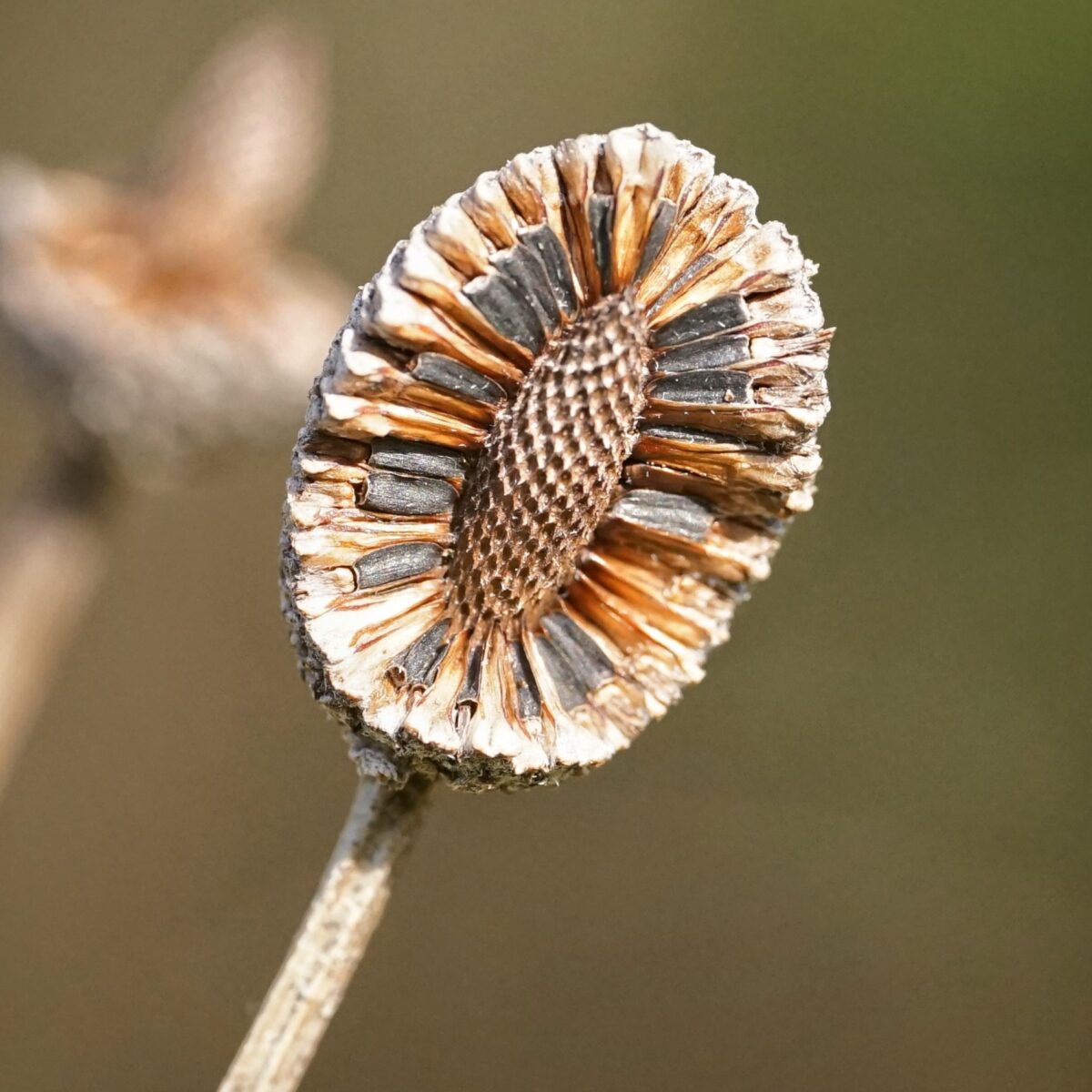
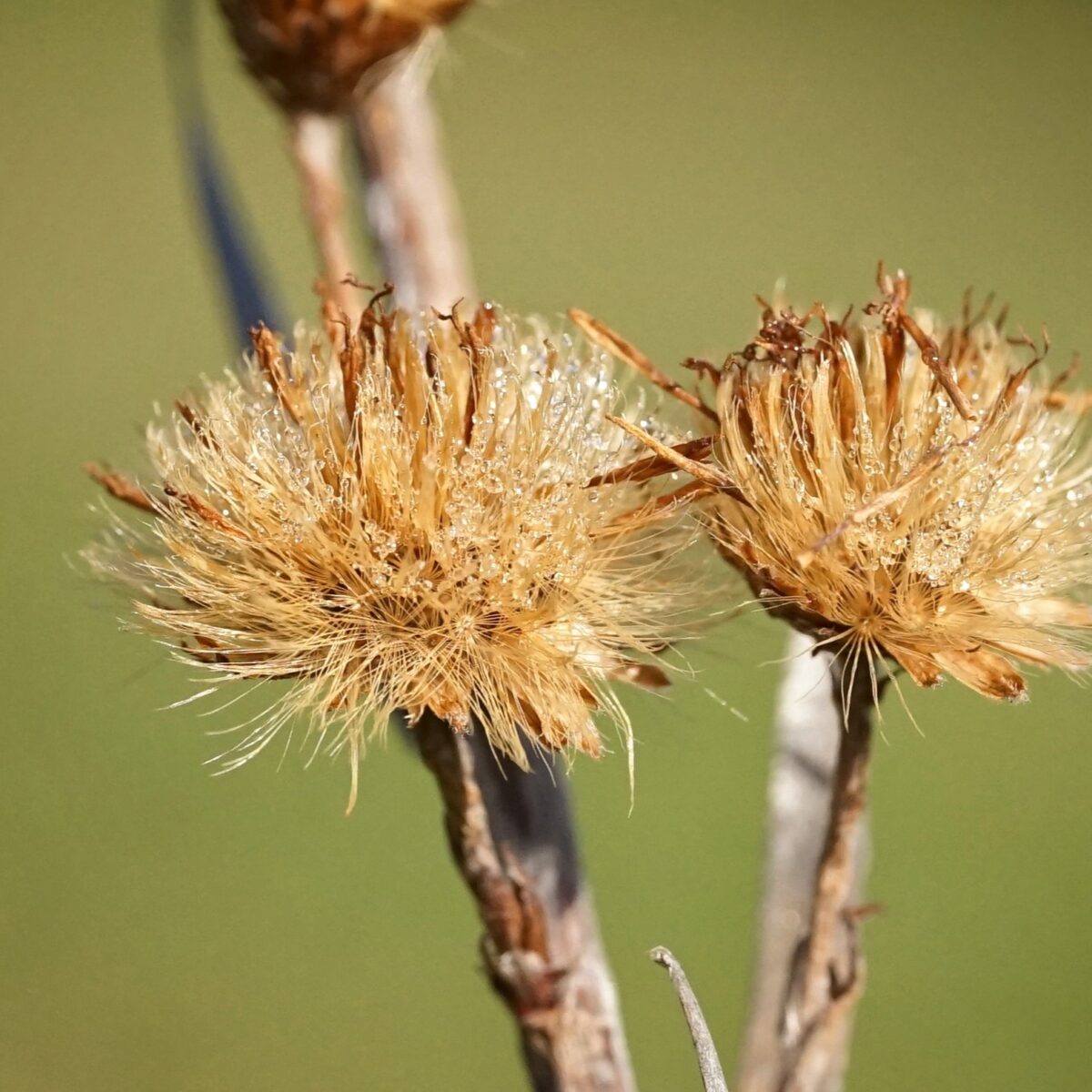
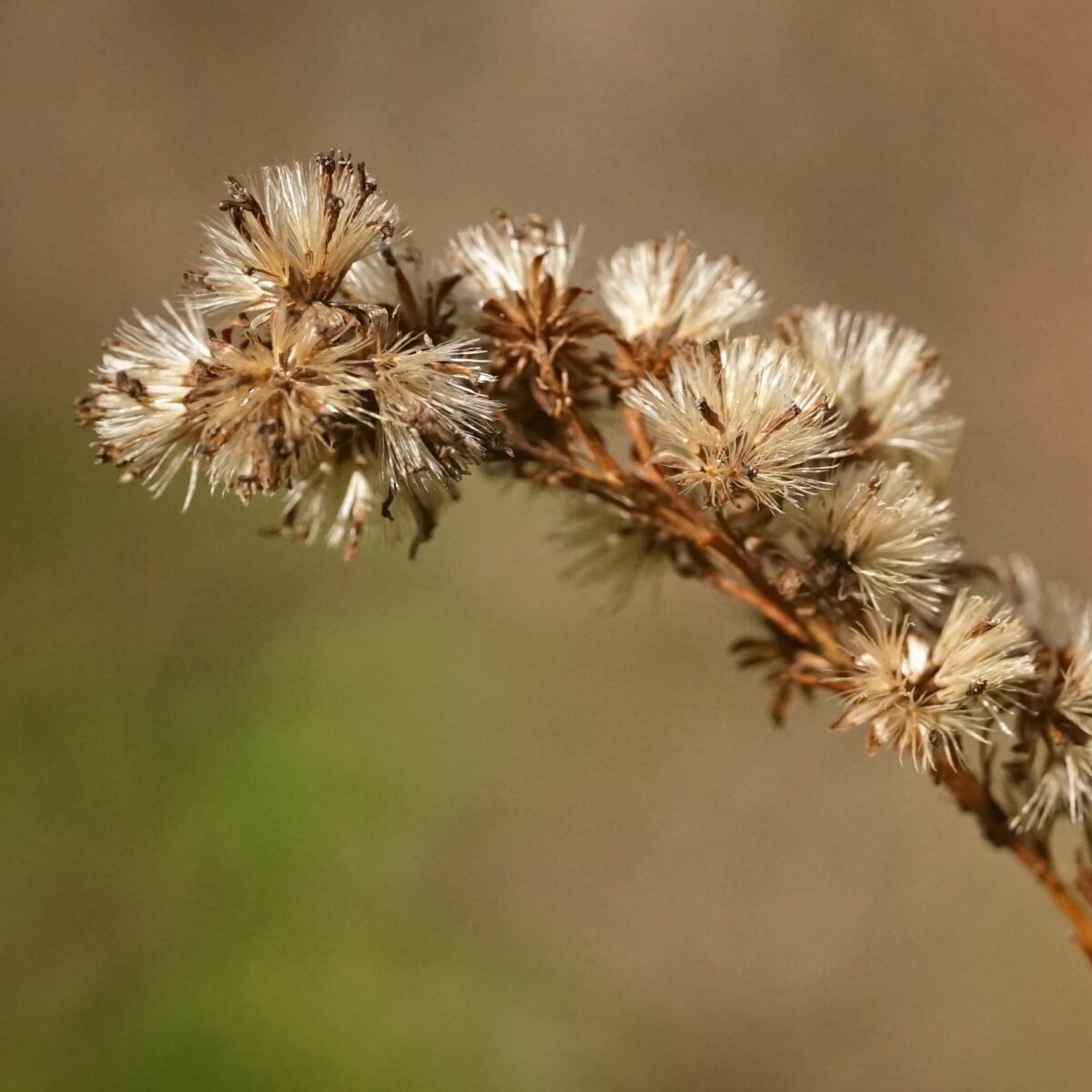
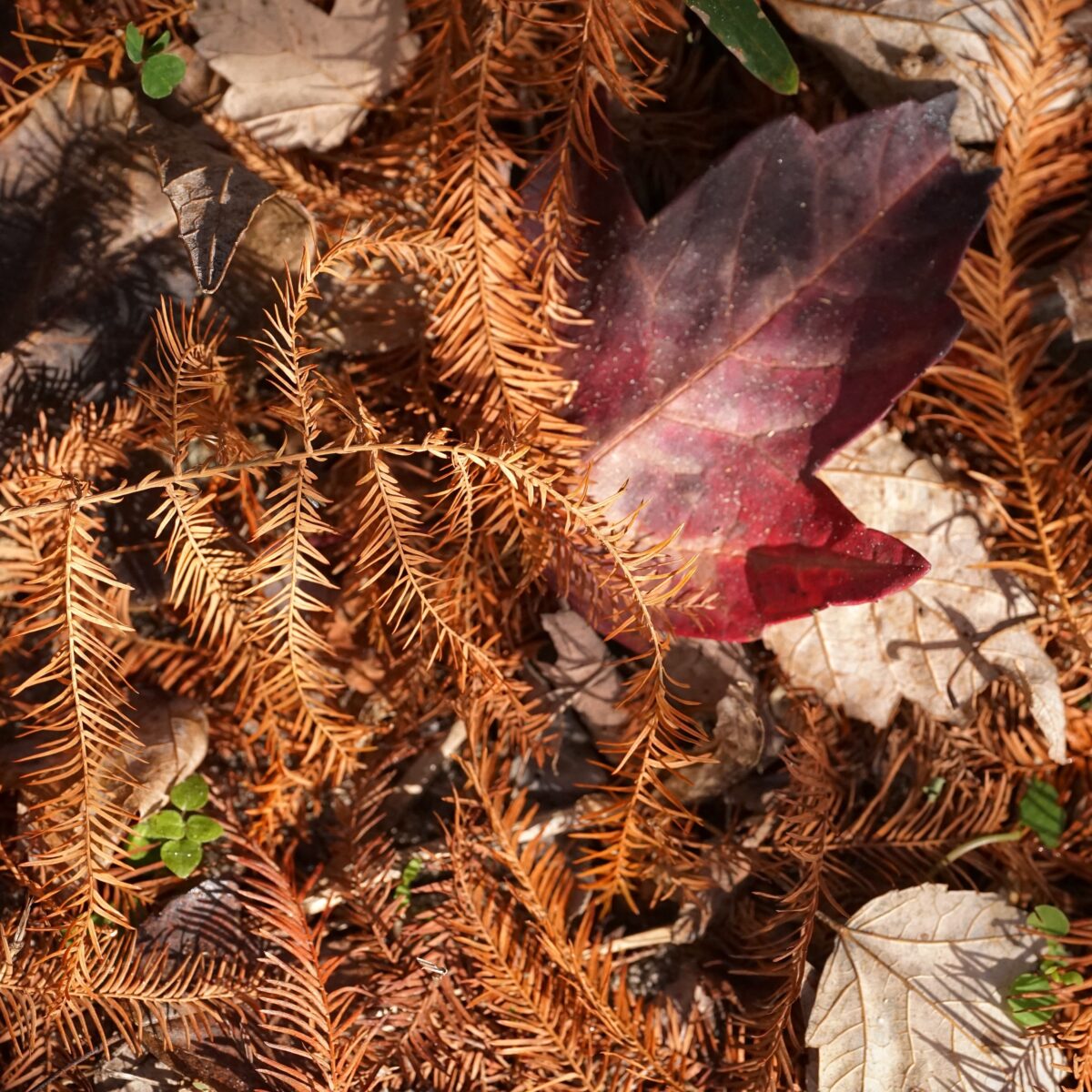
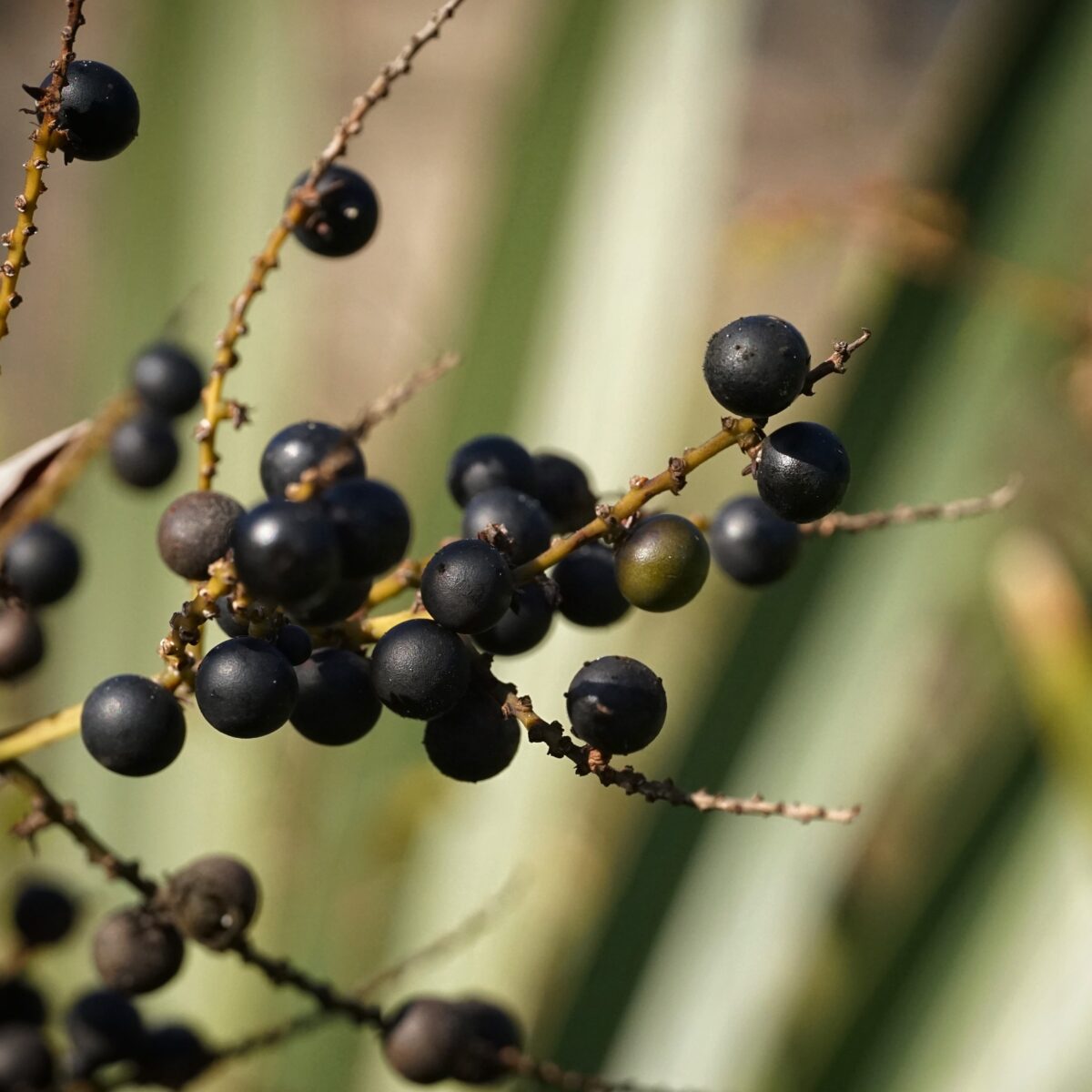
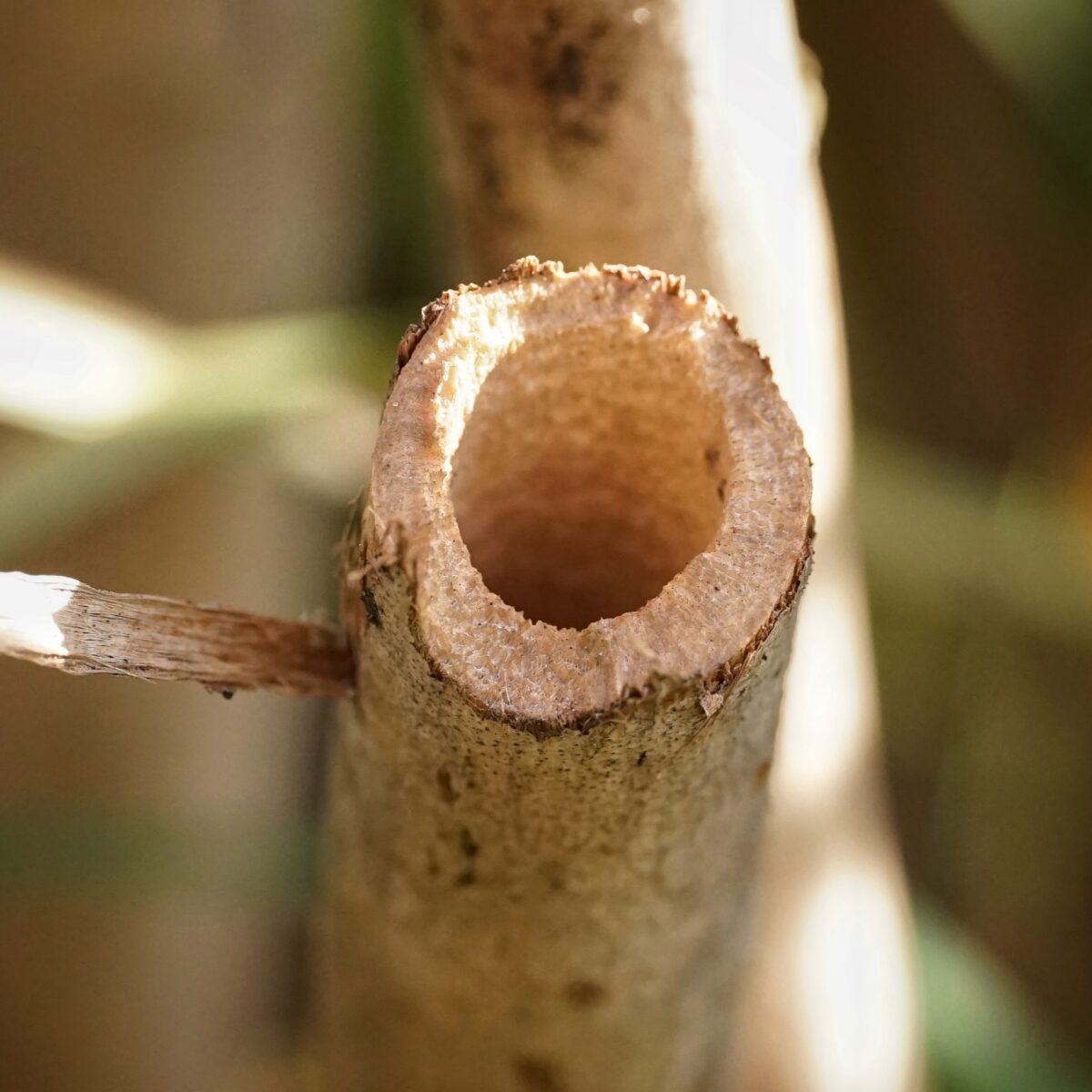
Diversify to keep some color!
When planning your native plant garden, diversity of plant types is key. Think about including wildflowers that will bloom in spring, summer and fall to provide nectar and pollen throughout these seasons. For winter, evergreen shrubs and trees such as palmettos and hollies will keep some green in the landscape and provide a fuller structure. The hollies also provide beautiful red winter berries for the birds.
What to do in winter:
Winter is a great time for observation, evaluation and planning. Check out wildflower grower Claudia Larsen’s tips here. You can also get ready for your garden’s spring awakening by brushing up on native plant pruning practices from Grounded Solutions founder Amanda Martin here.
